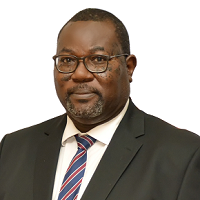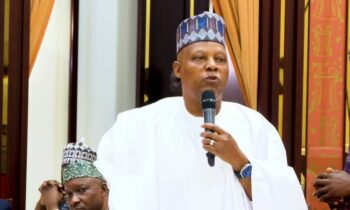Countries in West Africa can use their gas resources to improve energy access and ensure economic growth continentally, however, massive investments need to be made across the upstream, midstream and downstream sectors.
Expanding gas production and supply is critical to supporting economic development, addressing energy poverty and achieving energy independence across the African continent, and countries such as Senegal and Mauritania, blessed with significant resources and pursuing large-scale project developments, have the opportunity to kickstart the continent’s economic growth. Before the continent looks to help Europe with its energy crisis, gas producers should focus on African demand, as economic growth hinges on the continent’s utilization of its resources, and in particular, its gas. Therefore, by redirecting investment in key assets in the MSGBC region, Africa can benefit from a myriad of economic opportunities.
Africa is well-positioned to drive sustainable economic growth continent-wide through the monetization and utilization of gas. Firstly, expanding gas production will enable African economies to achieve energy security which is vital for industrialisation and socioeconomic growth. According to a 2018 study compiled by the Energy for Growth Hub, economic growth and employment creation in Africa is being restricted by a lack of affordable and reliable energy in nearly every African country. The study reiterated that power outages reduce employment opportunities by between 35% and 41% and as such, by expanding the gas market, African economies can create employment across the entire energy value chain, and thus, accelerate economic growth as well as the introduction and resumption of key sub-sectors including manufacturing, agriculture and transportation. With energy security considered the backbone of the economy, Senegal and Mauritania are well-positioned to usher in a new era of sustainable economic growth through gas utilization.
Secondly, investing in African gas can help make energy poverty history by 2030, with countries such in west Africa significantly improving energy access and clean power generation both regionally and continentally. In 2022, over 600 million people are still without access to electricity, and by implementing a clear gas-to-power plan that utilizes gas from major projects such as the Grand Tortue Ahmeyim (GTA) development – set to unlock 15 trillion cubic feet (tcf) of gas – Senegal and Mauritania have prioritized power generation and electrification. As a region heavily reliant on expensive, diesel power, gas-to-power could not only significantly improve energy access but dramatically reduce carbon emissions.
“Africa must look at balancing its exports and domestic utilization regarding gas. While countries in Europe are looking to ramp up gas imports in light of the Russia-Ukraine conflict, Africa must first prioritize its domestic needs. Accordingly, a mutually beneficial and cooperative relationship must occur. Firstly, Europe must invest in African gas so that the continent is better positioned to increase its exports. Secondly, Africa must utilize this investment to establish the adequate export and distribution infrastructure across the continent so that gas can be exported and utilized for power generation, energy security and poverty alleviation. Countries such as Senegal and Mauritania can lead in this regard, serving as an example for other resource rich nations looking to utilize and monetize gas,” states NJ Ayuk, Executive Chairman of the African Energy Chamber (AEC).
Meanwhile, by monetizing their gas resources, countries such as Senegal and Mauritania will be able to invest in large-scale infrastructure and development projects, driven by export earnings from gas. The International Energy Agency (IEA) projects net income from gas will increase from $57 billion in 2018 to approximately $200 billion by 2040 in the top ten gas producing countries in Africa. This will provide African hydrocarbon producers such as Senegal and Mauritania with revenues which they can use to further develop the energy and infrastructure sector or to invest in the expansion of other sectors. Algeria, for instance, which generated over $3.2 billion in revenue from its natural gas exports between January and September 2020, according to research firm Statista, could leverage energy revenues for economic growth. At the same time, Mozambique, which according to the Energy for Growth Hub, could reap $95 billion in revenues from its gas over the next 25 years, and thus, could make use of profits for market expansion, infrastructure development and overall economic growth. Senegal and Mauritania stand to learn from these countries and have already made significant progress in this regard.
With natural gas set to account for a lion’s share (39%) of Africa’s power generation mix in 2022, according to the AEC’s Q1 2022 Outlook, and demand doubling through to 2040, according to the International Energy Agency (IEA), expanding gas production across the continent has become crucial to accelerating economic growth. While the international community is looking at Africa to meet global gas demand, the continent must first prioritize its own development and security.
The AEC’s annual event, African Energy Week (AEW) 2022, which will take place from 18 – 21 October 2022 in Cape Town and under the theme, ‘Exploring and Investing in Africa’s Energy Future while Driving an Enabling Environment,’ will discuss the regulatory requirements which African hydrocarbon producers need to put in place to develop capital-attractive regimes to enable the full utilization of energy resources to alleviate energy poverty across the continent. AEW 2022 will host panel discussions, presentations and high-level meetings to discuss the role gas will play in helping the continent to achieve its industrialization goals and climate mitigation strategies.
AEW 2022 is the AEC’s annual conference, exhibition and networking event. AEW 2022 unites African energy stakeholders with investors and international partners to drive industry growth and development and promote Africa as the destination for energy investments. Key organizations such as the African Petroleum Producers Organization, as well as African heavyweights including Equatorial Guinea and Nigeria, have partnered with AEW, strengthening the role the event will play in Africa’s energy future.
NJ Ayuk, Executive Chairman of the African Energy Chamber (AEC).




